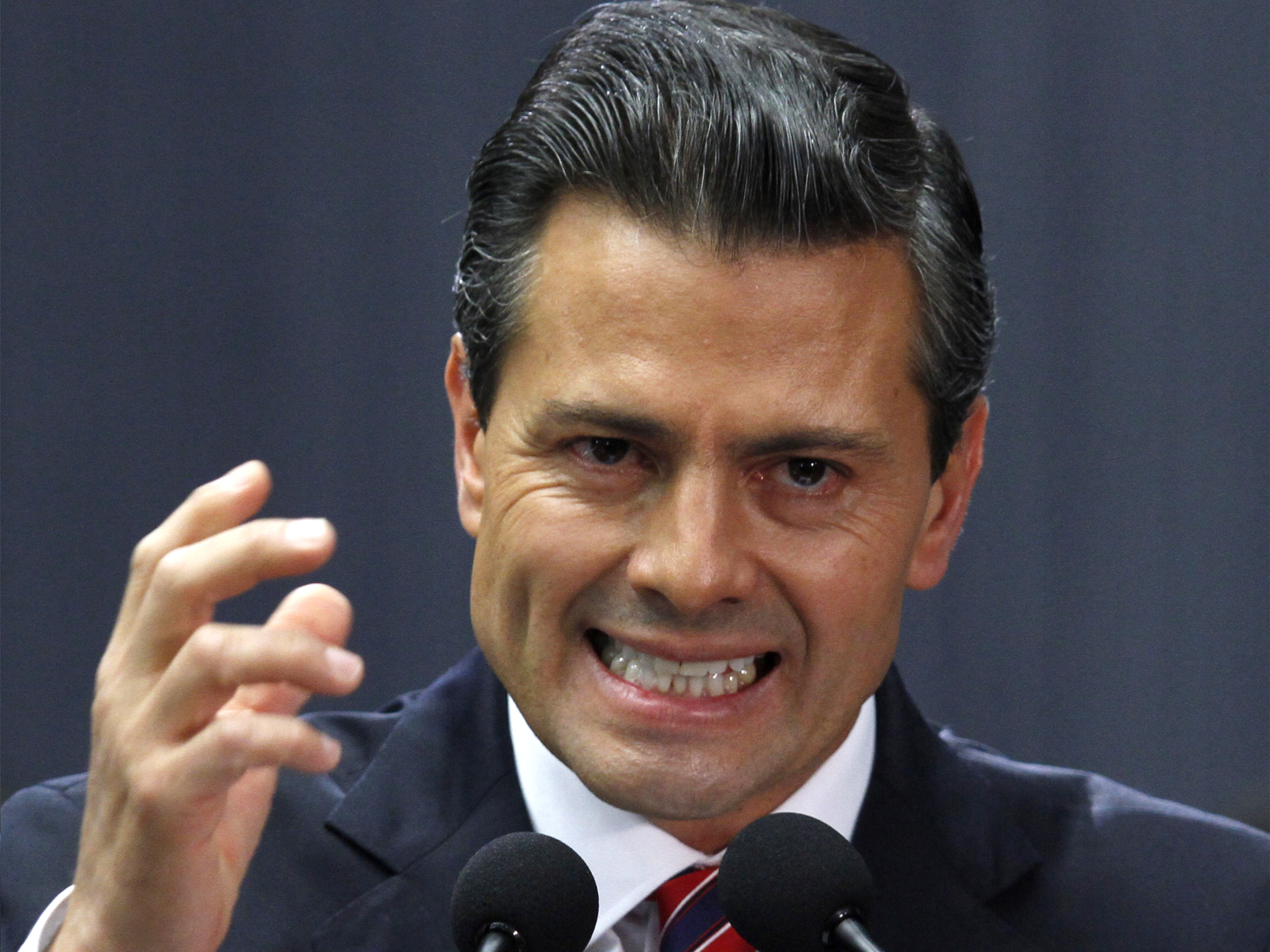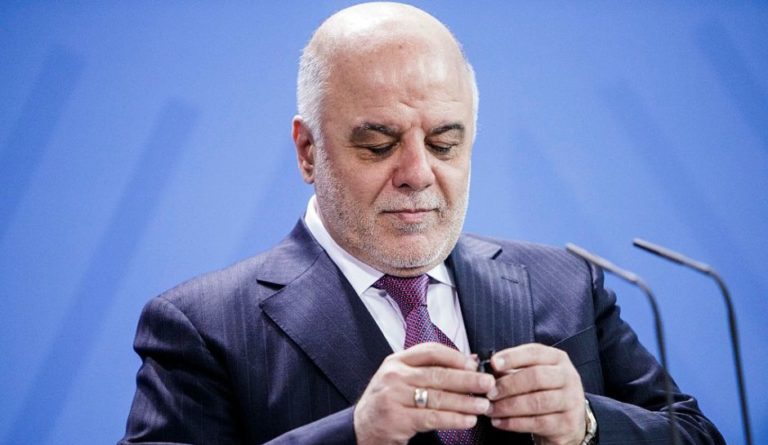World news became much more interesting after President Donald Trump took office. The US foreign and domestic policy increasingly resembles a stand-up show, while billions of people across the planet have unwittingly become its audience. Perhaps, it is early to make far-reaching conclusions about the consequences of abrupt actions of the new occupant of the White House and his team. However, we can already state that the first two weeks of Donald Trump's presidency definitely have not made the US new friends on the world stage. Quite the contrary. So, let's remember with what countries and for what reason the US relations have worsened after Trump came to power.
Mexico. Building thousands of kilometers of wall along the border with Mexico to combat illegal migration was one of Trump's loud campaign promises. And in a way, that Mexicans themselves must pay for it - to the last cent. Notes that migrants use tunnels to cross the border, and the number of Mexican illegal immigrants in the US has reached a ten-year minimum, did not shake the determination of the American leader.

It's one thing that cannot be taken away from the President Trump, his indefatigable zeal to implement his campaign promises. Therefore, Trump has no intention to rollback from his position of building the wall. As a result, his meeting with the Mexican President Enrique Nieto has canceled. Officially, Nieto cancelled it, but actually it was Donald Trump, who initiated the breakdown of negotiations, noticing via Twitter in advance, that it would be better for his Mexican counterpart to cancel the upcoming meeting in Washington if it is unwilling to pay for the badly needed wall. Mexico does not want to yield to the pressure of the Americans. A series of economic measures such as an increase in import duties, proposed by Trump, should wheedle money out of the southern neighbors, which cannot be taken seriously by the Government of Mexico. Because 84% of Mexican exports in the past year were in NAFTA countries - the US ($291 billion) and Canada ($24.5 billion). Actually, the US leader is not satisfied with the NAFTA - a free trade agreement for the North America - as well, and he has a;ready said about the need to change it as soon as possible or replace by a new agreement. Trump is also possessive of a policy of world automotive companies, expanding their production capacity in lower-cost Mexico with intent to sale their production in the US. He requires that the factories were opened in the United States and Americans received jobs there. The President's pressure on the automakers in this regard has already led to the curtailment of Ford plans to build a plant in Mexico. BMW and Toyota faced the same threats. Potentially, such a protectionist policy can cost Mexicans thousands of jobs and come back to Americans as a significant rise in price of products.
Germany. On January 28, Chancellor Angela Merkel held a telephone conversation with Donald Trump, during which the latter stressed the fundamental importance of NATO in the context of the expansion of the transatlantic links. After that, many in Germany exhaled with relief - it means that the United States is not going to close its military umbrella over Europe. And it was probably the only good news for the Germans. The head of the US president’s new National Trade Council, Peter Navarro, recently accused Germany of gaining an unfair trade advantage in relations with the US and other EU countries from the “grossly undervalued” euro. Thus, Navarro has supported the political forces in Europe, disgruntled with Germany's hegemony. Many observers fear the beginning of currency wars between Europe and the United States in the context of the statement of the American adviser to the president.

If we add to it Trump's excitement about the Brexit, it seems that the US president is considering the European Union and, in particular, Germany, more as competitors rather than allies. Differences in the value orientations of the German state and Trump's America, in particular, on the question of reception of migrants, play not last role in tensions between Germany and the US. Trump publicly criticized the immigration policy of the German Chancellor, and Merkel negatively commented on Trump's order, banning citizens of seven Muslim-majority countries from entering the US. President of Germany Frank-Walter Steinmeier, even when he was Minister of Foreign Affairs, called Trump "a preacher of hate," probably not seriously expecting the Republican candidate to become president of the world superpower. The results of the talks between the German Foreign Minister Sigmar Gabriel and his US counterpart Tillerson will show how the relations between Germany and the US will further develop.
Australia. This country-continent is one of the US allies and participated in all the military operations initiated by the Americans.

Then it was probably even more offensive for the Australian prime minister Malcolm Turnbull to listen Trump screaming and get hung up in the ear due to the fact that the new American president did not want to perform the agreement concluded by his predecessor. The question essentially concerns the fact that the United States should accept 1250 refugees from camps in Australia, Papua New Guinea and Nauru. However, the speaker of the White House Sean Spicer said that, nevertheless, the US will fulfill the agreement "out of respect for Australia". Donald Trump also announced his intention to withdraw from the negotiations on the trans-Pacific agreement, in which Australia was to take part.
Iran. Donald Trump's position on the Iranian issue is largely coincides with the position of Tel Aviv, which still cannot forgive the former President Barack Obama for concluding the nuclear deal with Iran. The new head of the White House also thinks that the deal was "terrible". It is difficult to say what policy Trump will pursue on Tehran, but it will be confrontational. His statements suggest that he will advocate for a return to the sanctions regime, which, in his opinion, was quite effective. Trump believes that by signing a deal with Iran, the Obama administration has saved it from imminent collapse, opening the Islamic republic access to $150 billion. Trump started quite famously, with the stroke of a pen depriving Iranian citizens the opportunity to visit the United States. Given the fact that mostly European and Chinese companies (in Trump's understanding both of them are the US economic opponents) have been active on the Iranian market, which is becoming available for international investors, we can assume that Washington will do its utmost to achieve the isolation of Iran. The recent launch of the Iranian ballistic missile gives the new US administration a convenient excuse for this.
Iraq. Donald Trump's order banning the Iraqi citizens from entering the US was called "offensive" by the county's Prime Minister Haider al-Abadi, however, didn't introduce retaliatory measures against the United States. Which is quite obvious.

US troops did not need any visa to enter Iraq in 2003. Today, Baghdad couldn't manage without the US assistance in the fight against ISIS. Meanwhile, Trump has already said that Iran is taking over more and more of Iraq. It's hard to argue with that, as the influence of Shiite Iran on Iraqi Shia followers (60-65% of the population) after the fall of Saddam Hussein's government and the actual decentralization of the country has increased significantly. Experts from the US intelligence fear that Trump's order, which is interpreted as "anti-Muslim" by Arabs, will contribute to a further rise of anti-Americanism and radicalization of the Muslim population in the world - and, in particular, in Iraq.
While it is not clear what position Donald Trump will take on the issues of Ukraine and Syria, from which the US-Russian relations will depend largely. But we should not count on a fundamental change of policy. US Ambassador to the UN, Nikki Haley, commenting on the aggravation of the situation in the east of Ukraine accused Russia of "aggressive behavior." The US President's idea of creating a security zone in Syria may not be supported by Moscow, and certainly will not be supported by Tehran. It is also unknown what position Trump will takes on the Kurdish issue and on the case of Fethullah Gulen, a cleric living in exile in the US, accused by Turkey of organizing the military coup in July last year. But one thing is clear: there are a lot of surprises to be expected in the coming weeks and months, as Trump will adjust the US position in the international political system of coordinates.






